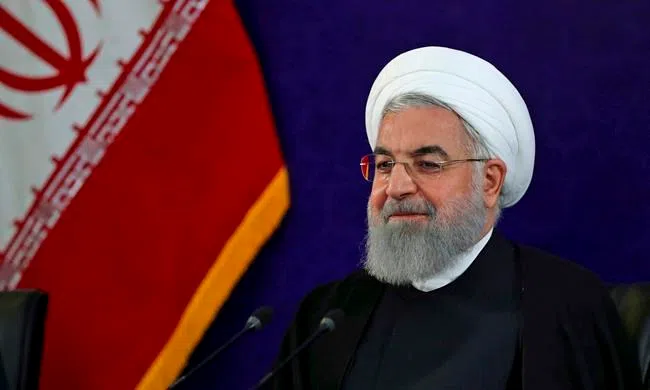
Iran president: Uranium enrichment may resume if deal fails
TEHRAN, Iran — President Hassan Rouhani warned Tuesday that Iran could restart enriching uranium “without any limitations” within weeks, after President Donald Trump pulled America out of the nuclear deal, though he said world powers still in the accord could potentially save the pact.
Rouhani’s speech, broadcast live on state television within minutes of Trump’s announcement, marked a doubling-down for the cleric who has seen his signature foreign policy achievement threatened by Trump for years. Trump’s announcement from the White House marked potentially the worst-case scenario for the relative moderate, as the country’s economy continues to reel despite the deal and may further worsen.
Stressing that the accord remained a “multilateral” one, and not just with the U.S., Rouhani said he’d be sending Iranian Foreign Minister Mohammad Javad Zarif to the countries still in the deal — China, France, Germany, Russia and the United Kingdom.
Iran hopes the European Union will pass laws to protect European firms from any potential U.S. sanctions. EU officials have suggested they’ll do what they can to salvage the agreement.
